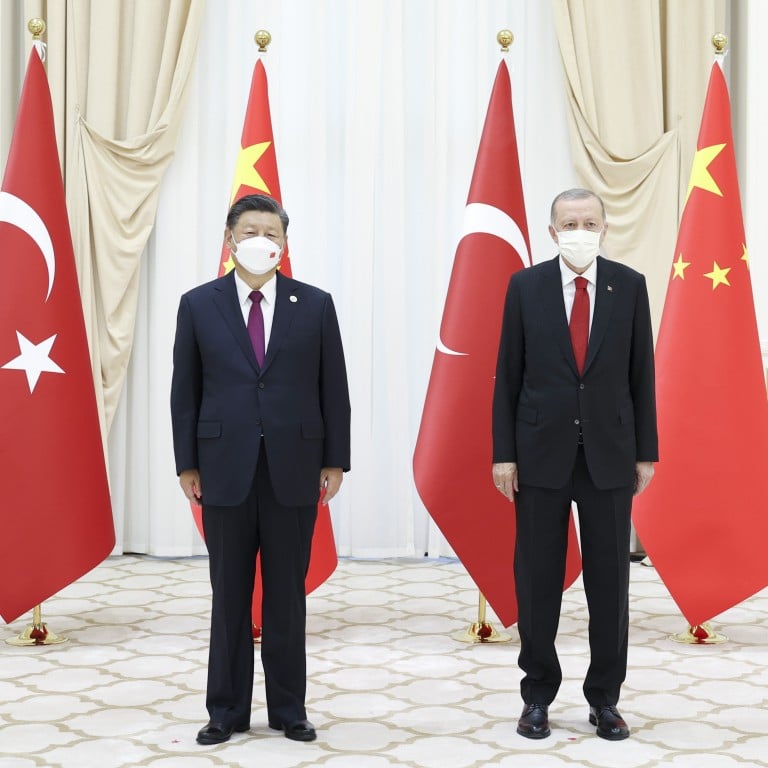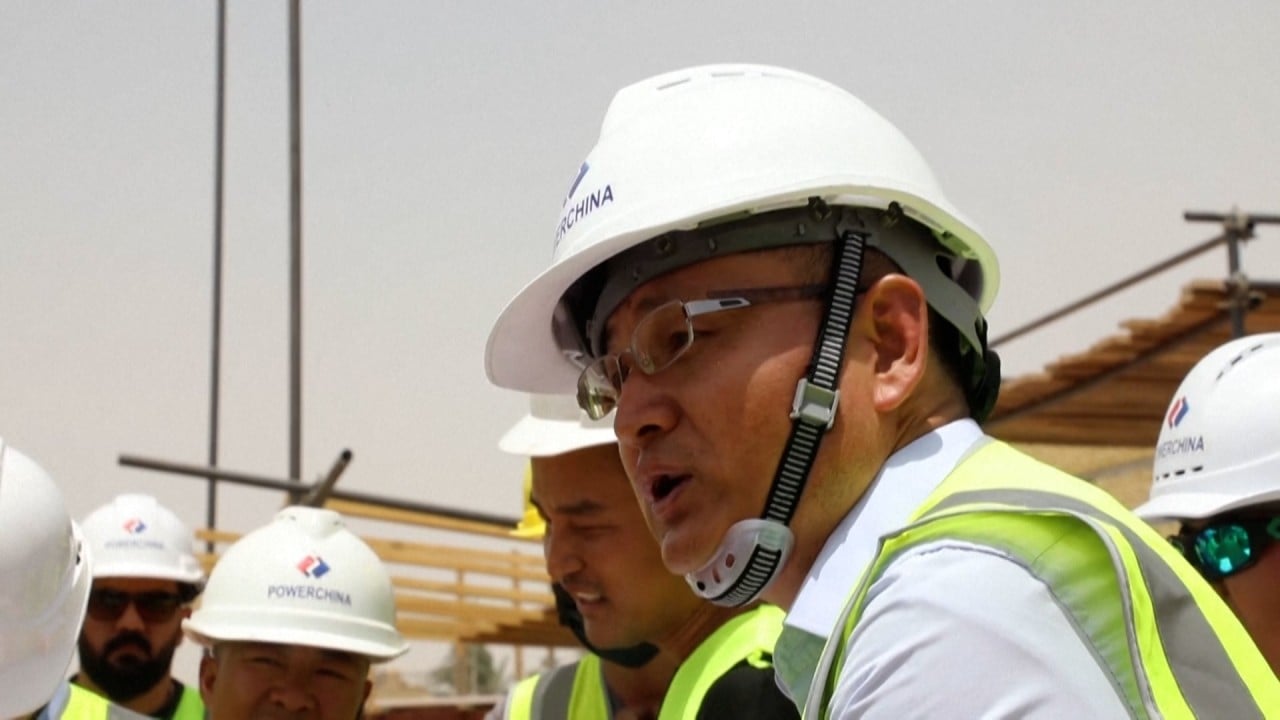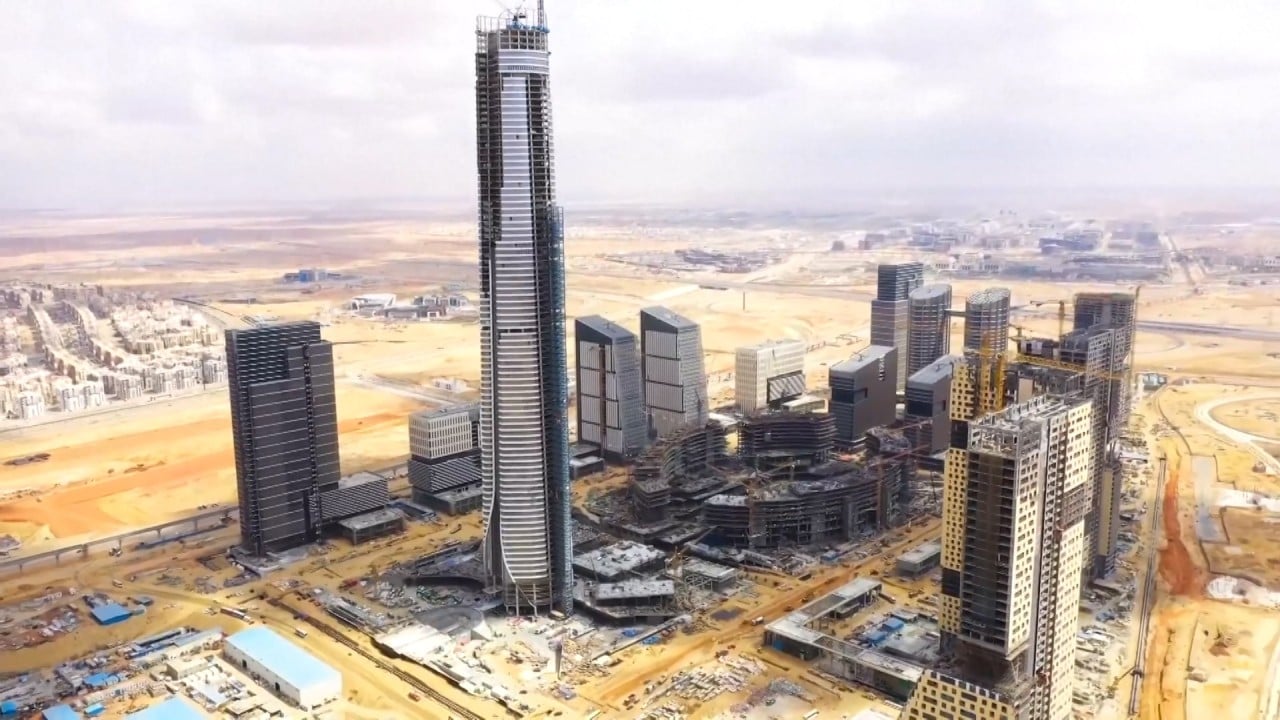
China-Turkey ties tipped for growth under belt and road but Nato, Uygur issue stand in the way
- Turkey will rely more on China’s technology and capital to develop the economy under the Belt and Road Initiative, analysts say
- But major differences stand in the way of closer ties, including Turkey’s Nato membership and concern about the treatment of Uygur Muslims
Despite being a middle power with security connections to the United States and economic ties with China, Turkey could rely more on development under the Belt and Road Initiative in the future, analysts say.
Turkey marked 51 years of diplomatic and trade ties with China this year, with President Xi Jinping telling his Turkish counterpart Recep Tayyip Erdogan in September that Beijing was ready to elevate the strategic partnership between the two countries, established in 2010, to a higher level.
“Turkey, as a country in Nato, will be cautious towards China on the security front,” said Li Lifan, a senior fellow at the Shanghai Academy of Social Sciences. “But it will rely on China’s technology and capital to develop the digital economy under the Belt and Road Initiative.”
The two nations signed a memorandum of understanding in 2015 to align development of the Belt and Road Initiative with the Middle Corridor, a trade initiative from Ankara that aims to link China with Europe via Turkey – which officially has changed its name to Türkiye – by road and rail.
The route from Turkey, which aims to capitalise on the country’s transcontinental position, would pass through the Caucasus and Central Asia before reaching China’s western Xinjiang region.
To ensure smooth operation of the Middle Corridor, Turkey needs investment to construct a railway between the northeastern city of Kars and the capital Ankara, said Gokhan Tekir, an assistant professor with the Department of International Relations at Ankara Haci Bayram Veli University.
Tekir said the Turkish government considers the Belt and Road Initiative a way to achieve its goal of connecting Beijing with London.
Altay Atli, the founding manager of Istanbul-based consultancy Atli Global, said that belt and road projects have not yet “taken off” in Turkey, with only a seaport and an energy-plant, which is still under construction, that could be counted as major investments.
Turkey’s economic development through international cooperation should proceed independently from political alliances or ideological considerations, Atli said.
“There is a more pragmatic [and] business-oriented approach,” he said. “What matters when it comes to Chinese investments in Turkey will be the extent to which they would contribute to economic development.”
In the first nine months of the year, Turkish data showed its main import partner was Russia followed by China, while its key export market was Germany, then the US.
China was Turkey’s second-largest trade partner as of 2021, according to Turkey’s foreign ministry.
Emre Demir, an assistant professor at the Ankara-based TED University’s Department of Political Science and International Relations, said Turkey was in need of telecommunications and energy investment, as well as spending for an extensive transport network.
“Turkey wants to build its 5G infrastructure,” he said. “We see that the Turkish government as well as private telecommunication companies located in the county prefer to partner with Huawei.”
In 2017, Turkcell and Huawei Technologies Co. signed a deal to deepen 5G development and boost indigenous 4.5G work. Two years later, both companies announced that they would collaborate on the 5G-oriented All-Cloud Core Network in Turkey.
In 2019, Huawei also signed a cooperation protocol with the country’s technology park Informatics Valley to build smart cities.
While Chinese companies like Huawei are making inroads in Turkey, geopolitical factors are complicating deeper ties.
Wang Yiwei, a professor at Renmin University’s School of International Studies, said the US does not wish to see Chinese belt and road investments in Turkey due to security concerns.
“The US plays a leading role in Nato that has an aim to suppress Russia and China,” he said.
However, he added the relationship between the US and Turkey has become more tense after the latter bought a missile defence system from Russia.
The European Union’s (EU) relationship with Turkey is also worsening due to the country’s shift away from democracy and increasingly confrontational foreign policy. Turkey’s application for accession to the EU is deadlocked as a result.
Although relations between China and Turkey are improving, Li at the Shanghai Academy of Social Sciences does not rule out future problems.
“For example, the dilemma on isms and issues related to Uygurs,” he said. “As the economy develops, these problems might become more obvious, but they’re not obstacles of economic development between the two countries.”
China has risen in power and Turkey knows this truth
“China has risen in power and Turkey knows this truth. I think the Turkey-China relationship will develop next year even if the current government [is] changed,” he said, referring to the presidential and parliamentary elections being held in June.



